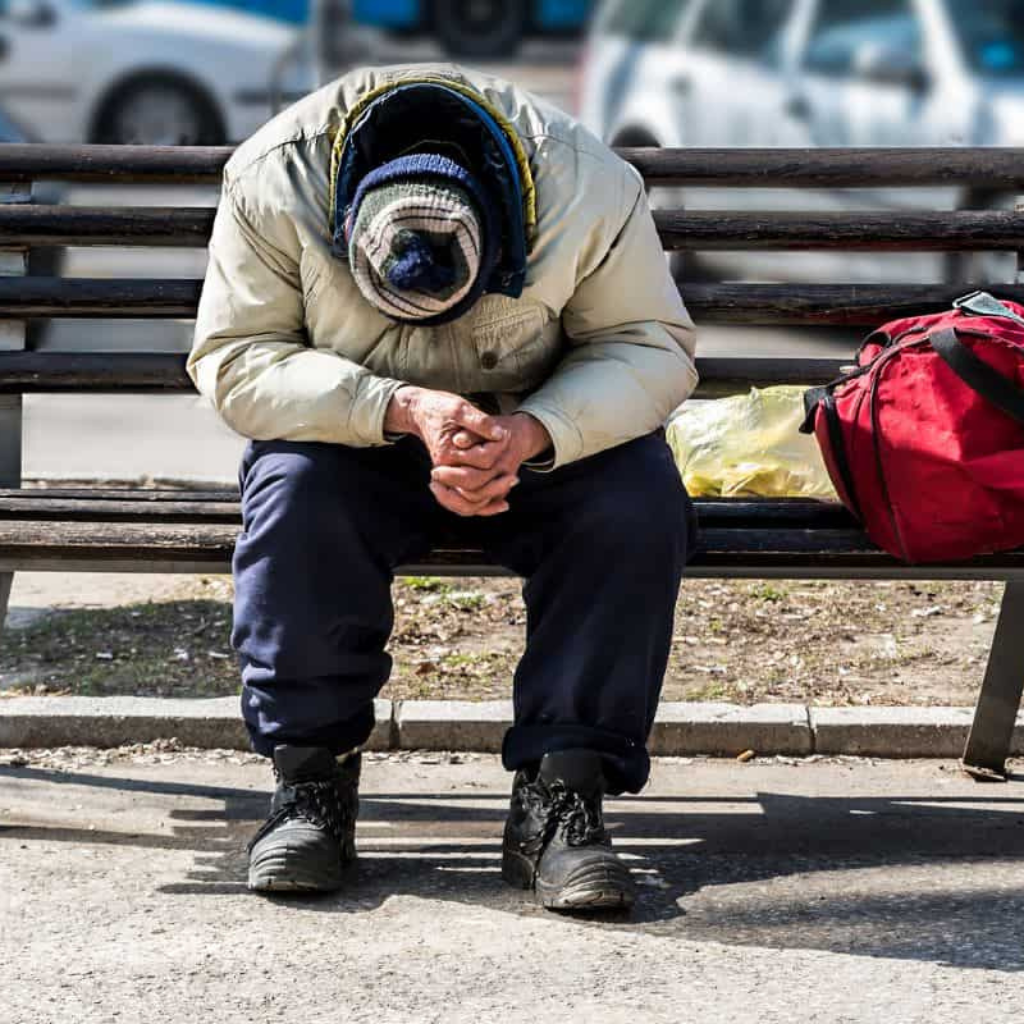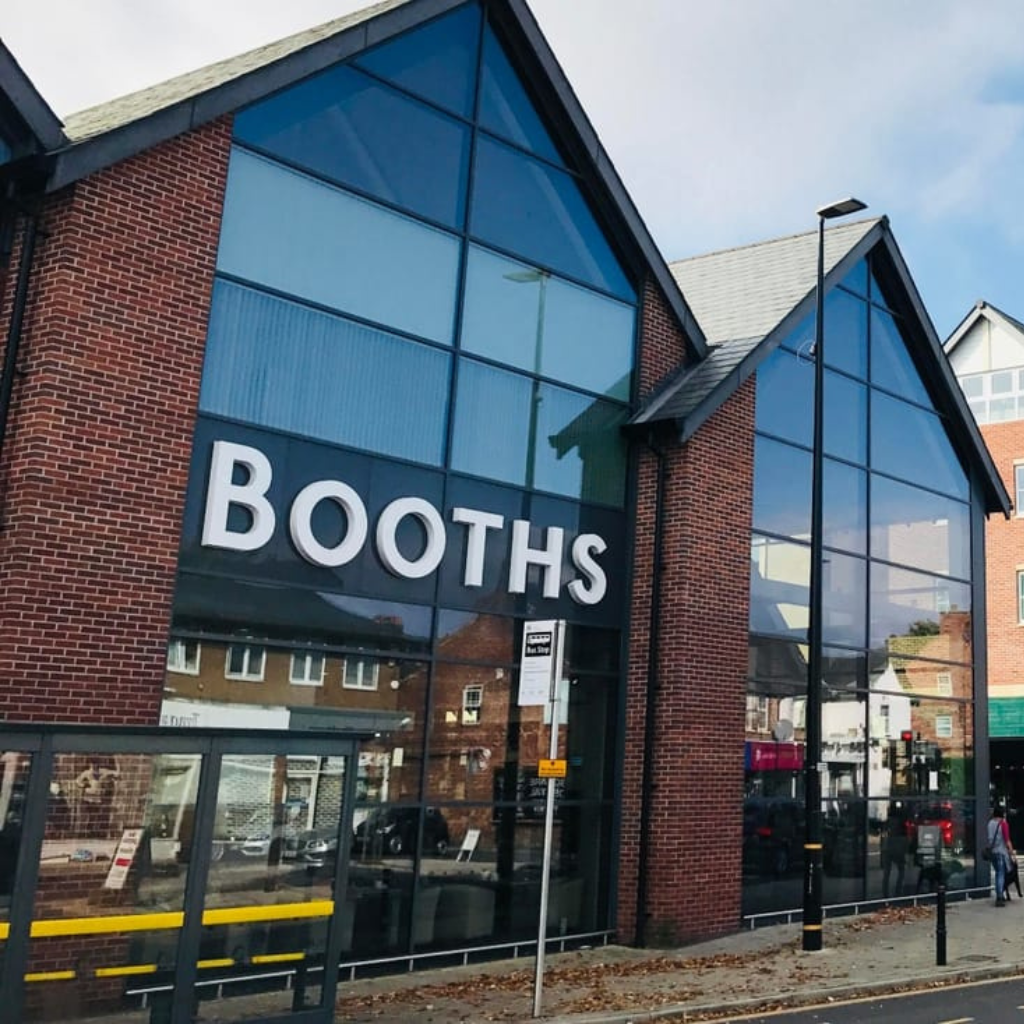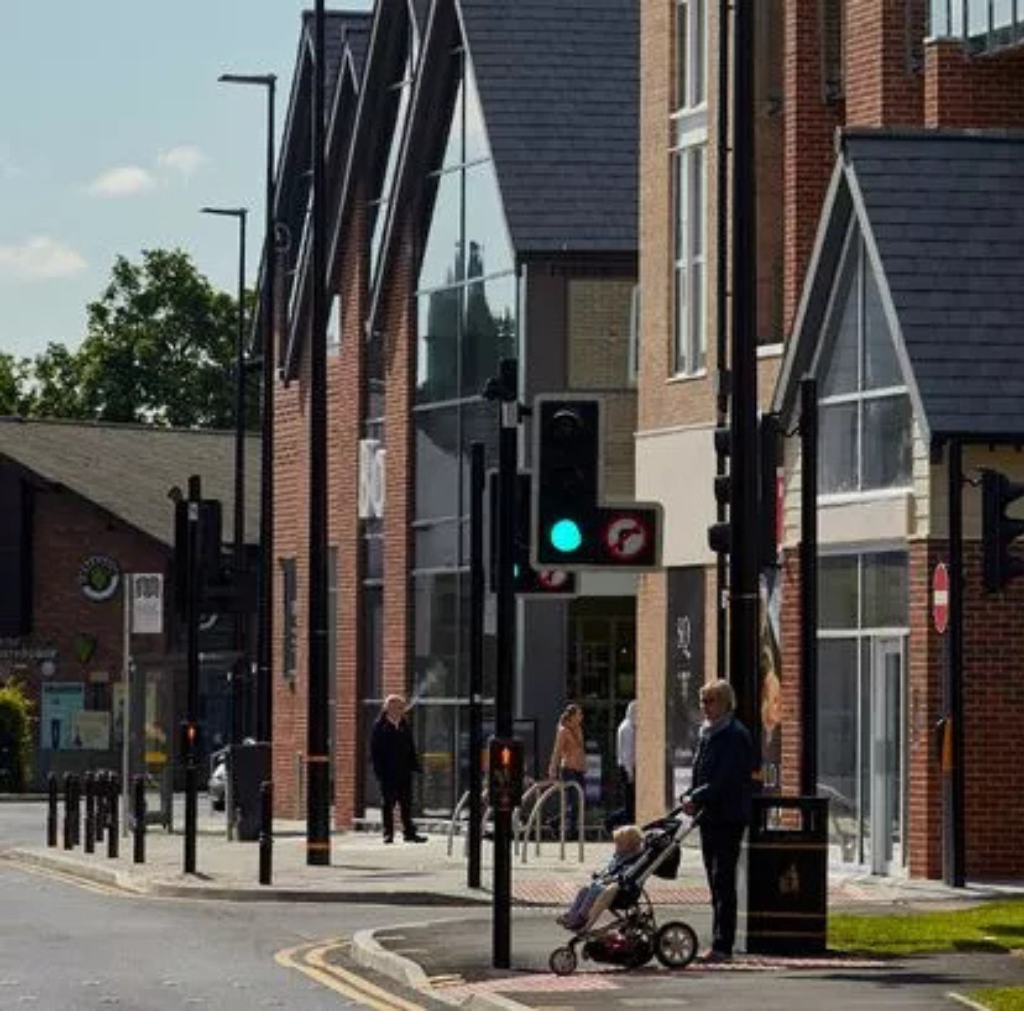Substance abuse is a widespread issue that affects people from all walks of life, but for those who are homeless, it presents a particularly challenging barrier to recovery. Many individuals facing homelessness are already struggling with numerous hardships, including lack of stable housing, access to healthcare, and basic necessities. These challenges are often compounded by the presence of addiction, creating a cycle that can seem impossible to break. The lack of a permanent address, coupled with the stigma that surrounds homelessness and substance abuse, makes it difficult for individuals to seek help or gain access to the necessary rehabilitation services.
Addressing substance abuse among the homeless is not only a matter of public health but also a crucial step toward helping individuals regain stability in their lives. Substance use disorder can fuel homelessness, and conversely, homelessness can exacerbate addiction, creating a vicious cycle. Without intervention, these individuals are at risk of prolonged homelessness, worsening health, and even death. However, with the right support, rehabilitation programs can help individuals break free from addiction and begin the road to recovery.
This article aims to provide guidance on how homeless individuals can access substance rehabilitation services. By shedding light on the various challenges they face and exploring the available resources, we hope to offer practical steps that can help connect them with the care they need. Through understanding the pathways to rehabilitation, we can support efforts to break the cycle of addiction and homelessness, ultimately helping individuals reclaim their lives and futures.
Understanding the Barriers to Accessing Substance Rehabilitation
For homeless individuals struggling with substance abuse, the road to rehabilitation is fraught with obstacles. These barriers can prevent them from seeking or receiving the help they desperately need. While the desire to recover may be present, the systemic and personal challenges that come with homelessness often make access to rehabilitation services incredibly difficult. Understanding these barriers is essential for creating solutions that can help break the cycle of addiction and homelessness.
- Lack of Stable Housing
One of the most significant challenges for homeless individuals seeking substance rehabilitation is the absence of stable housing. Many rehabilitation programs require participants to have a permanent address, making it difficult for those who are homeless to qualify or stay engaged in the program. Without a safe and stable living environment, it is nearly impossible for individuals to focus on their recovery. Homelessness often forces people to prioritize immediate survival needs such as food, shelter, and safety, leaving little room for the long-term commitment required by substance rehabilitation. - Limited Access to Transportation and Healthcare
Access to healthcare, including rehabilitation services, is often restricted by a lack of reliable transportation. Homeless individuals may not have the means to travel to treatment centers, especially if they are located far from shelters or areas where people experiencing homelessness tend to stay. Many rehabilitation programs require regular visits, which can be difficult to maintain without consistent transportation options. Furthermore, without healthcare coverage or the means to afford private care, many homeless individuals are unable to access the treatment they need. Public healthcare services can sometimes be overwhelmed, leading to long wait times or insufficient support for those seeking help. - Social Stigma and Fear of Discrimination
Social stigma remains a significant barrier for many homeless individuals seeking substance rehabilitation. Both homelessness and substance abuse carry societal judgments that can make it difficult for individuals to approach rehabilitation services. Fear of discrimination or being treated poorly by others can discourage people from reaching out for help, even when they are ready to make a change. The shame associated with both addiction and homelessness can lead to feelings of isolation and hopelessness, which further prevent individuals from seeking the care they need. Overcoming this stigma requires creating an environment where people feel safe, respected, and supported in their recovery journey. - Financial Constraints and Lack of Insurance
Financial hardship is another major barrier for homeless individuals seeking rehabilitation. Many rehabilitation programs, especially those offered by private facilities, can be costly, and without insurance or the ability to pay, individuals may find themselves excluded from these services. While there are government-funded programs and nonprofit organizations that provide free or low-cost treatment, these services are often limited, have long waiting lists, or may not be easily accessible. Without financial resources, homeless individuals may face a difficult decision between meeting their basic needs and seeking treatment for their substance abuse, often choosing the former out of necessity.
These barriers are not insurmountable, but they highlight the complex reality that homeless individuals face when trying to access substance rehabilitation. Overcoming these obstacles requires a coordinated effort from service providers, policymakers, and communities to create more inclusive, accessible, and supportive pathways to recovery for those who need it the most.
Available Rehabilitation Services for the Homeless
Despite the numerous barriers homeless individuals face when seeking substance rehabilitation, there are a variety of programs and services designed to help them overcome addiction and regain stability. These services are often provided by public and private organizations, government agencies, non-profits, and faith-based groups, offering crucial support to those who need it most. Understanding the different types of available rehabilitation services can help homeless individuals and their advocates navigate the options and find the most suitable path to recovery.
- Public and Private Rehabilitation Programs
Both public and private rehabilitation programs play a vital role in providing treatment options for homeless individuals struggling with substance abuse. Public programs, often funded by government grants and supported by local health departments, are designed to provide low-cost or no-cost treatment to individuals in need. These programs typically focus on long-term recovery, offering inpatient and outpatient services, counseling, detoxification, and mental health support.
On the other hand, private rehabilitation programs may offer more specialized treatments or shorter wait times but can be prohibitively expensive for those without insurance or financial resources. While these programs may not be easily accessible to homeless individuals without funding, many offer sliding scale fees or payment plans to make them more affordable. Some private programs also partner with public health services, offering scholarships or financial aid to those in need, creating additional opportunities for recovery. - Government-Funded Programs (e.g., Medicaid, Medicare)
For homeless individuals, government-funded programs such as Medicaid and Medicare are critical in accessing rehabilitation services. Medicaid, in particular, is a valuable resource for low-income individuals, including the homeless, providing coverage for a wide range of healthcare services, including substance abuse treatment. Medicaid can cover outpatient therapy, inpatient rehabilitation, medications, and other necessary services to support recovery.
Medicare, primarily for individuals over the age of 65, can also provide coverage for substance abuse treatment, though it is less commonly used among younger homeless individuals. Many states have expanded Medicaid eligibility under the Affordable Care Act, making it more accessible to individuals who might otherwise be excluded. With the right guidance, homeless individuals can enroll in these programs and use them to access the treatment they need. - Non-Profit Organizations and Shelters Offering Rehabilitation Services
Non-profit organizations and shelters often serve as a lifeline for homeless individuals seeking rehabilitation. These organizations are dedicated to providing free or low-cost treatment, and many offer rehabilitation programs specifically tailored to the needs of homeless individuals. These programs often include detox services, individual and group counseling, job training, and housing assistance as part of a holistic approach to recovery.
Shelters that offer rehabilitation services can provide immediate support and a safe environment where individuals can begin their recovery journey. Some shelters also partner with local clinics, hospitals, and mental health professionals to offer comprehensive care that addresses both substance abuse and any co-occurring mental health issues. Nonprofits and shelters can also connect individuals with other community resources, helping them navigate the complexities of homelessness while receiving treatment. - Faith-Based Rehabilitation Programs
Faith-based rehabilitation programs offer another important avenue for homeless individuals seeking recovery. These programs are typically run by religious organizations, churches, or faith-based charities, and often provide free or low-cost services to those in need. Many of these programs focus on the spiritual aspect of recovery, alongside the physical and psychological components, using faith-based counseling, mentorship, and community support to help individuals overcome addiction.
While faith-based programs may not be suitable for everyone, they offer a unique and compassionate approach to recovery, particularly for individuals who may find strength and hope in spiritual guidance. These programs can provide a sense of community and belonging, which can be crucial for individuals experiencing homelessness. Additionally, many faith-based organizations work closely with other service providers to offer a broad range of supportive services, including housing, job training, and legal assistance, to help individuals reintegrate into society after completing rehabilitation.
There is a wide range of rehabilitation services available to homeless individuals struggling with substance abuse, each offering a unique set of benefits. By understanding the different types of programs public and private, government-funded, non-profit, and faith-based homeless individuals can explore the options best suited to their circumstances. Accessing these services can be challenging, but with the right resources and support, individuals can find the help they need to begin their recovery journey.
Supportive Services for Homeless Individuals in Recovery
Recovery from substance abuse is a complex and often long-term process, especially for individuals who are homeless. While rehabilitation programs are crucial for helping individuals overcome addiction, supportive services play an equally vital role in ensuring a successful and sustained recovery. These services provide ongoing assistance, helping individuals navigate the challenges they face in rebuilding their lives. From case management and mental health support to peer networks and legal aid, these resources offer the comprehensive care needed to help individuals move forward in their recovery journey.
- Case Management and Outreach Services
Case management is an essential service for homeless individuals in recovery, providing personalized support to guide them through the complex process of rehabilitation and reintegration into society. Case managers work directly with individuals to assess their needs, create customized recovery plans, and connect them with appropriate resources. These services can include finding stable housing, accessing healthcare, and securing employment.
Outreach services play a critical role in reaching individuals who may be difficult to engage or who are reluctant to seek help. Outreach workers actively seek out homeless individuals, often visiting shelters, encampments, or other areas where homeless populations gather. They provide information about available rehabilitation programs and supportive services, helping individuals understand the options available to them. Outreach efforts ensure that those who might otherwise remain disconnected from resources can find the help they need. - Mental Health Counseling and Support Groups
Mental health counseling is an integral part of the recovery process for homeless individuals struggling with substance abuse. Many individuals experiencing homelessness also face co-occurring mental health issues, such as depression, anxiety, trauma, or post-traumatic stress disorder (PTSD). Addressing these underlying mental health issues alongside addiction is crucial for long-term recovery. Mental health professionals provide therapy and counseling to help individuals process their emotions, cope with stress, and develop healthier thought patterns.
Support groups also play a vital role in recovery. Group therapy and peer-led support groups allow individuals to connect with others facing similar challenges. Sharing experiences, offering encouragement, and receiving advice from peers can create a sense of community and reduce feelings of isolation. Support groups provide a safe space where individuals can discuss their struggles without fear of judgment, reinforcing the idea that recovery is possible with support and dedication. - Peer Support Networks and Mentorship
Peer support networks are incredibly valuable for individuals in recovery, offering the opportunity to connect with others who have lived through similar experiences. Peer mentors individuals who have successfully navigated their own recovery from homelessness and addiction can provide guidance, encouragement, and practical advice. Mentorship programs pair homeless individuals with mentors who help them set goals, stay accountable, and celebrate their progress.
Peer support networks help to build trust and a sense of camaraderie among those in recovery. These networks often exist within rehabilitation programs, shelters, and community organizations, allowing individuals to form lasting relationships with others who understand their struggles. This sense of belonging can be a powerful motivator, reinforcing the belief that recovery is not only possible but also achievable with the right support system. - Legal and Financial Assistance for Overcoming Obstacles
Legal and financial obstacles can significantly hinder the recovery process for homeless individuals. Legal issues such as outstanding warrants, eviction records, or lack of identification can create barriers to securing stable housing, employment, or access to services. Legal aid programs can provide homeless individuals with the assistance they need to navigate these challenges, helping them clear legal hurdles, expunge records, and obtain identification documents.
Financial assistance is another crucial support service for individuals in recovery. Homeless individuals may struggle with managing their finances, particularly when they are trying to pay for treatment or housing while also meeting basic needs. Financial counseling and assistance programs can help individuals learn how to budget, manage debt, and access public benefits such as food stamps or housing subsidies. By addressing financial instability, these programs ensure that individuals can focus on their recovery without the added stress of financial insecurity.
Together, these supportive services offer a comprehensive approach to recovery for homeless individuals. By addressing not only substance abuse but also the broader challenges related to housing, mental health, legal issues, and financial stability, these services create a solid foundation for long-term success. With the right combination of rehabilitation programs and ongoing support, individuals experiencing homelessness can break the cycle of addiction and begin to rebuild their lives.
The Role of Outreach Programs in Connecting the Homeless to Rehabilitation
Outreach programs play a crucial role in connecting homeless individuals with the substance rehabilitation services they need. These programs help bridge the gap between those experiencing homelessness and the resources available to aid in their recovery. Outreach workers are often the first point of contact for homeless individuals seeking help, offering support, guidance, and crucial information. By building trust and fostering relationships within the community, outreach programs provide a lifeline for people who may otherwise feel disconnected from rehabilitation services.
- How Outreach Workers and Community Health Programs Help Link the Homeless with Rehabilitation Services
Outreach workers and community health programs serve as the vital link between homeless individuals and the rehabilitation services they need. Outreach workers are trained professionals who actively seek out homeless individuals, whether they are living in shelters, on the streets, or in encampments. They engage with people where they are, providing them with information about available rehabilitation options and connecting them to the necessary services.
These workers are often the first to inform homeless individuals about treatment centers, government-funded programs, and mental health resources that can help them address substance abuse. They work closely with local rehabilitation centers, clinics, shelters, and other service providers to ensure that individuals are linked with the appropriate resources for their specific needs.
Community health programs also play an important role in outreach by providing essential health services, including screenings, vaccinations, and substance abuse treatment referrals. These programs are often designed to serve homeless populations, ensuring that people without stable housing have access to healthcare and rehabilitation services. Community health teams may include doctors, nurses, case managers, and mental health professionals who collaborate to offer comprehensive care, guiding homeless individuals through the process of seeking rehabilitation and maintaining recovery. - Examples of Successful Outreach Initiatives
Several outreach initiatives across the country have proven successful in connecting homeless individuals to rehabilitation services. One such example is the Homeless Outreach Program in San Francisco, which is designed to engage individuals living on the streets and connect them with mental health, substance abuse, and housing services. Outreach workers visit areas where homeless individuals congregate, providing them with information about local treatment options and helping them access services.
Another successful initiative is the Street Medicine Program in Philadelphia, which sends medical professionals to the streets to provide healthcare services directly to homeless individuals. The program includes addiction treatment and mental health counseling, with outreach teams helping individuals transition from the streets to rehabilitation programs.
In addition, programs such as Pathways to Recovery in Los Angeles are dedicated to building relationships with homeless individuals in order to connect them to rehabilitation services. The initiative combines outreach with a trauma-informed approach, recognizing the unique challenges that homeless individuals face and offering personalized care and support to help them move toward recovery. - Importance of Building Trust and Providing Information
Building trust is a foundational element of successful outreach efforts. Many homeless individuals have experienced trauma, abuse, or neglect, which can lead to distrust of authority figures or formal systems. Outreach workers must take the time to establish rapport with individuals, showing empathy, respect, and understanding. Without trust, homeless individuals may be reluctant to engage with services or share their struggles openly, hindering their chances of receiving the support they need.
Providing clear, accurate information is equally important. Many individuals experiencing homelessness are unaware of the resources available to them, and confusion or misinformation can prevent them from seeking help. Outreach workers play a key role in educating homeless individuals about the rehabilitation options that exist, whether it’s public programs, private treatment centers, or non-profit organizations. By simplifying the information and making it accessible, outreach workers help reduce the barriers to access, ensuring that individuals feel empowered to take the first step toward recovery.
In addition to providing information about substance rehabilitation, outreach workers also assist in navigating complex systems, such as applying for Medicaid or securing housing. These practical steps are essential for ensuring that individuals have everything they need to start their recovery journey on the right foot.
Outreach programs are essential in connecting homeless individuals to the rehabilitation services they need. By engaging directly with people where they are, outreach workers build trust, offer critical information, and provide a bridge to rehabilitation programs. With the right outreach initiatives in place, homeless individuals have a better chance of overcoming addiction, accessing services, and starting a new chapter in their recovery journey.
Importance of Public Awareness and Advocacy
Raising public awareness and advocating for policies that support access to substance rehabilitation for the homeless are key steps toward addressing the interconnected issues of homelessness and substance abuse. Public awareness helps to foster understanding of the unique challenges homeless individuals face, while advocacy can lead to the implementation of policies and resources that provide much-needed support. Through these efforts, communities can help ensure that rehabilitation services are accessible to all, especially to those most in need.
- Raising Awareness about the Link Between Homelessness and Substance Abuse
The relationship between homelessness and substance abuse is complex, with each issue often exacerbating the other. Substance abuse can contribute to homelessness, as individuals may lose their jobs, relationships, and housing due to addiction. Conversely, living on the streets or in unstable housing conditions can increase the likelihood of substance use as individuals cope with stress, trauma, and lack of access to basic needs. Raising public awareness about this cyclical relationship is crucial for mobilizing support and resources to address both issues simultaneously.
Public awareness campaigns can help people understand that homelessness is not merely a result of poor decision-making, but rather a complex socio-economic issue often tied to mental health challenges, addiction, and lack of support systems. Highlighting the need for integrated services that address both housing instability and substance abuse is essential in promoting a holistic approach to rehabilitation. Community education, media campaigns, and collaborations between healthcare providers and advocacy groups can bring attention to this issue, leading to greater public support for solutions. - Advocacy for Policies That Support Access to Rehabilitation for the Homeless
Advocacy is necessary to ensure that policies and funding exist to provide the homeless with access to rehabilitation services. By working with lawmakers, advocacy groups can push for increased funding for programs that address homelessness and substance abuse. This can include advocating for the expansion of government-funded programs like Medicaid, which can help cover the cost of rehabilitation for homeless individuals. Additionally, advocates may push for policies that ensure the availability of shelter spaces with integrated substance abuse treatment options, or that allow access to mental health services alongside addiction treatment.
Advocacy efforts can also focus on reducing the stigma surrounding addiction, which often prevents homeless individuals from seeking help. By fostering an environment of understanding and compassion, policies can be developed that prioritize the dignity and needs of homeless individuals struggling with substance abuse. - The Role of Local Governments, Healthcare Providers, and the Community
Local governments, healthcare providers, and the community play vital roles in advocating for and supporting access to rehabilitation services for the homeless. Local governments can allocate funds to build and sustain rehabilitation programs that cater specifically to homeless populations. By forming partnerships with non-profit organizations, healthcare facilities, and shelters, local governments can create a network of support that facilitates access to rehabilitation services.
Healthcare providers, including doctors, nurses, and mental health professionals, can advocate for improved services and policies to address homelessness and substance abuse. These professionals are often in a unique position to see firsthand the impact of homelessness on health and recovery, and they can lend their voices to push for better treatment options.
The community also plays a significant role in raising awareness and providing support. Local businesses, religious organizations, and community groups can collaborate to create programs, offer resources, and provide a supportive environment for individuals seeking rehabilitation. Community-driven efforts are essential to ensuring that homeless individuals feel welcome and supported in their recovery journey.
Success Stories: How Homeless Individuals Have Successfully Accessed Rehabilitation
Despite the many challenges homeless individuals face, there are numerous success stories that demonstrate the possibility of recovery and reintegration into society. These stories serve as powerful reminders that with the right support, individuals can overcome both homelessness and substance abuse.
- Case Studies or Examples of Individuals Who Overcame Homelessness and Substance Abuse
Take the story of John, a man who spent several years living on the streets of a major city. Struggling with addiction to alcohol and opioids, he faced numerous barriers to accessing treatment. However, after being contacted by an outreach worker, John was enrolled in a government-funded rehabilitation program that provided housing, counseling, and treatment. With the support of case managers, healthcare professionals, and peer mentors, he was able to regain his health, secure employment, and ultimately find permanent housing. Today, John is an advocate for homeless rehabilitation, sharing his story to inspire others.
Another success story involves Maria, a woman who struggled with both substance abuse and mental health issues. After years of moving between shelters and living in unstable conditions, Maria connected with a non-profit organization that specialized in integrated care for homeless women. Through their support, she was able to access both mental health counseling and substance abuse treatment. With ongoing support from her case manager and a local support group, Maria now works as a counselor for others in recovery, giving back to the community that helped her. - The Importance of Support Systems and Rehabilitation Programs in These Success Stories
These success stories highlight the critical role that both rehabilitation programs and support systems play in helping homeless individuals overcome substance abuse. For both John and Maria, access to comprehensive rehabilitation programs that offered housing, healthcare, and addiction treatment were essential for their recovery. Without stable housing, healthcare, and the opportunity to focus on their recovery without immediate survival concerns, their success would have been much less likely.
The support systems in place—whether through case management, peer mentoring, or community support groups—provided the ongoing encouragement and resources necessary for long-term success. These systems create a safety net for individuals who may otherwise fall through the cracks, ensuring that they are not left to face their recovery journey alone.
Ultimately, these stories prove that recovery is not only possible, but it can also be transformative. By providing homeless individuals with access to rehabilitation and a robust support system, we can help break the cycle of addiction and homelessness, giving people the chance to reclaim their lives and rebuild their futures.
Read more: What to Consider When Choosing the Right Diet Plan for You
Conclusion
Addressing the dual challenges of homelessness and substance abuse requires a multifaceted approach that combines public awareness, advocacy, accessible rehabilitation services, and strong support systems. The path to recovery for homeless individuals can be long and difficult, but with the right resources and guidance, it is entirely possible for them to overcome both substance abuse and homelessness.
Outreach programs, public health initiatives, and the tireless work of case managers and rehabilitation centers play pivotal roles in ensuring that homeless individuals have access to the services they need. By raising awareness about the deep connection between homelessness and addiction, and advocating for policies that improve access to care, communities can create a more supportive environment for recovery.
Moreover, success stories from individuals who have navigated this difficult journey underscore the power of rehabilitation programs and the importance of comprehensive support systems in helping homeless people break free from the cycle of addiction and instability. With a collaborative effort from local governments, healthcare providers, non-profits, and the community, we can offer hope and real opportunities for recovery to those in need.

















